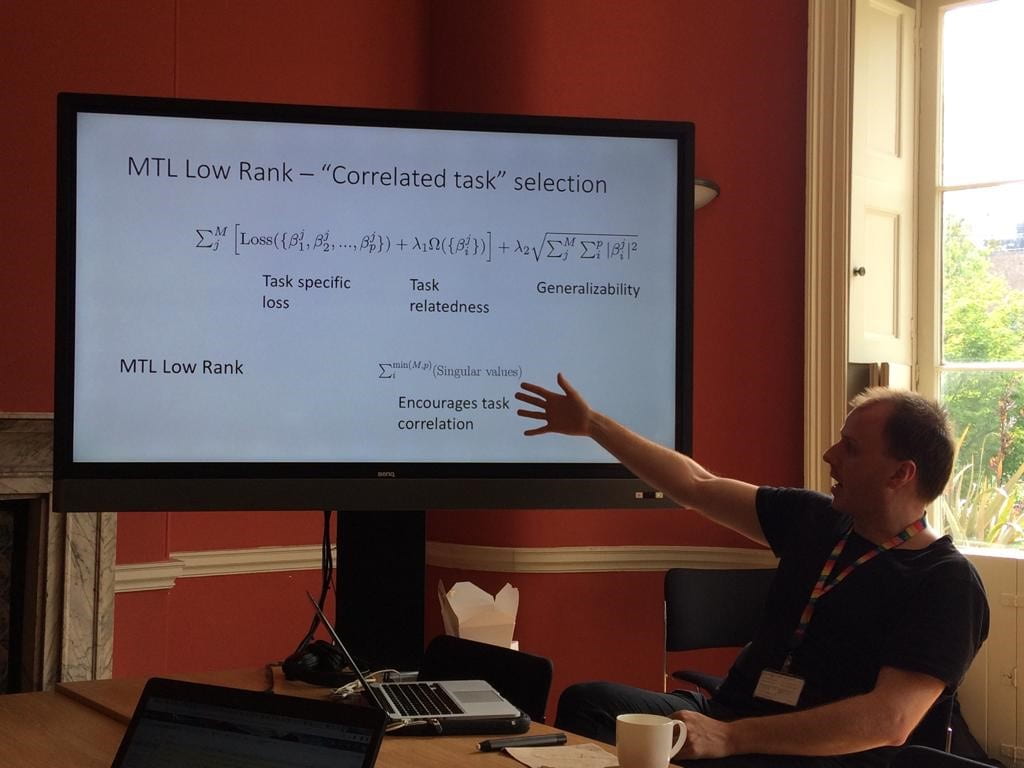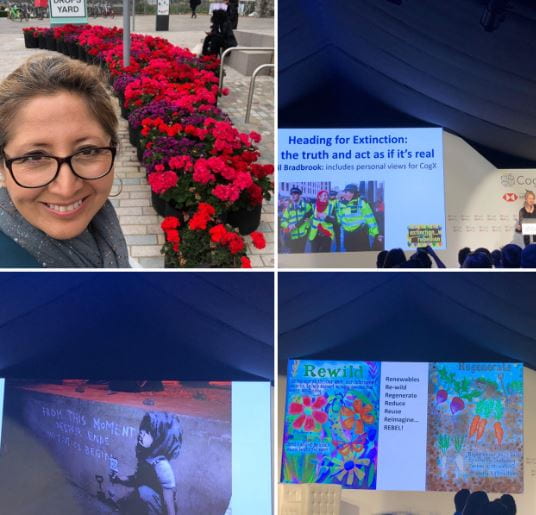-

Multitask learning for AMR
Blog written by Rob Arbon, Data Scientist at the University of Bristol. This project was funded by the annual Jean Golding Institute seed corn funding scheme. Multitask learning for AMR “Multitask learning for AMR” developed out of our collaboration with the Jean Golding Institute on the One Health Selection and Transmission of Antimicrobial Resistance (OH-STAR)…
-

Interactive visualisation of Antarctic mass trends from 2003 until present
Blog written by Dr Stephen Chuter, Research Associate in Sea Level Research, School of Geographical Sciences, University of Bristol This project was funded by the annual Jean Golding Institute seed corn funding scheme. Antarctica and sea level – a grand socioeconomic challenge Global sea level rise is one of the most pressing societal and economic…
-

Guide to safeguarding your precious data
Blog written by Jonty Rougier, Professor of Statistical Science. Data are a precious resource, but easily corrupted through avoidable poor practices. This blog outlines a lightweight approach for ensuring a high level of integrity for datasets held as computer files and used by several people. There are more hi-tech approaches using a common repository and…
-

Cog X 2019: The Festival of AI and Emerging Technology – 10-12 June 2019
Blog written by Patty Holley, Jean Golding Institute Manager. CogX 2019 took place during the first half of London Tech Week in the vibrant Knowledge Quarter of Kings Cross in London. The conference started only 3 years ago, yet this year hosted 15,000 attendees and 500 speakers making it the largest in Europe. CogX 2019…
-

Introducing the University of Bristol’s Turing Fellows: Bill Browne
Our latest series of blogs introduces you to our University of Bristol’s Turing Fellows, where the Jean Golding Institute have been speaking to some of the thirty Alan Turing Institute Fellows to find out a little more about their work and research interests. Last time we spoke to Philip Hamann, NIHR Clinical Lecturer in Rheumatology and Turing…
-

Introducing the University of Bristol’s Turing Fellows: Philip Hamann
Our latest series of blogs introduces you to our University of Bristol’s Turing Fellows, where the Jean Golding Institute have been speaking to some of the thirty Alan Turing Institute Fellows to find out a little more about their work and research interests. Last time we spoke to Genevieve Liveley, Reader in Classics and Turing Fellow…
-

Introducing the University of Bristol’s Turing Fellows: Genevieve Liveley
Continuing our blog series, ‘Introducing the University of Bristol’s Turing Fellows,’ the Jean Golding Institute have been speaking to several of the the thirty University of Bristol Alan Turing Institute Fellows in order to find out a bit more about their work and research interests. You can take a look at our last interview with Levi John Wolf, Lecturer in Quantitative Human…
-

Introducing the University of Bristol’s Turing Fellows: Levi John Wolf
In our blog series ‘Introducing the University of Bristol’s Turing Fellows’, we have been finding out more about the thirty academics at the University of Bristol who have recently become Alan Turing Institute Fellows through a series of interviews. You can find the first blog of our series, featuring Iván Palomares Carrascosa, as well as an interview with Paul Wilcox…
-

New partnership with LV General Insurance advances data science capabilities
We are delighted to announce that the University of Bristol and LV= General Insurance (LV= GI), one of the UK’s largest personal insurers, will be embarking on a new partnership with the aim of working together to make advancements in the field of data science by sharing knowledge, skills and opportunities. As part of the…

The University of Bristol's central hub for data science and data-intensive research, connecting a multidisciplinary community of experts across the University and beyond.
